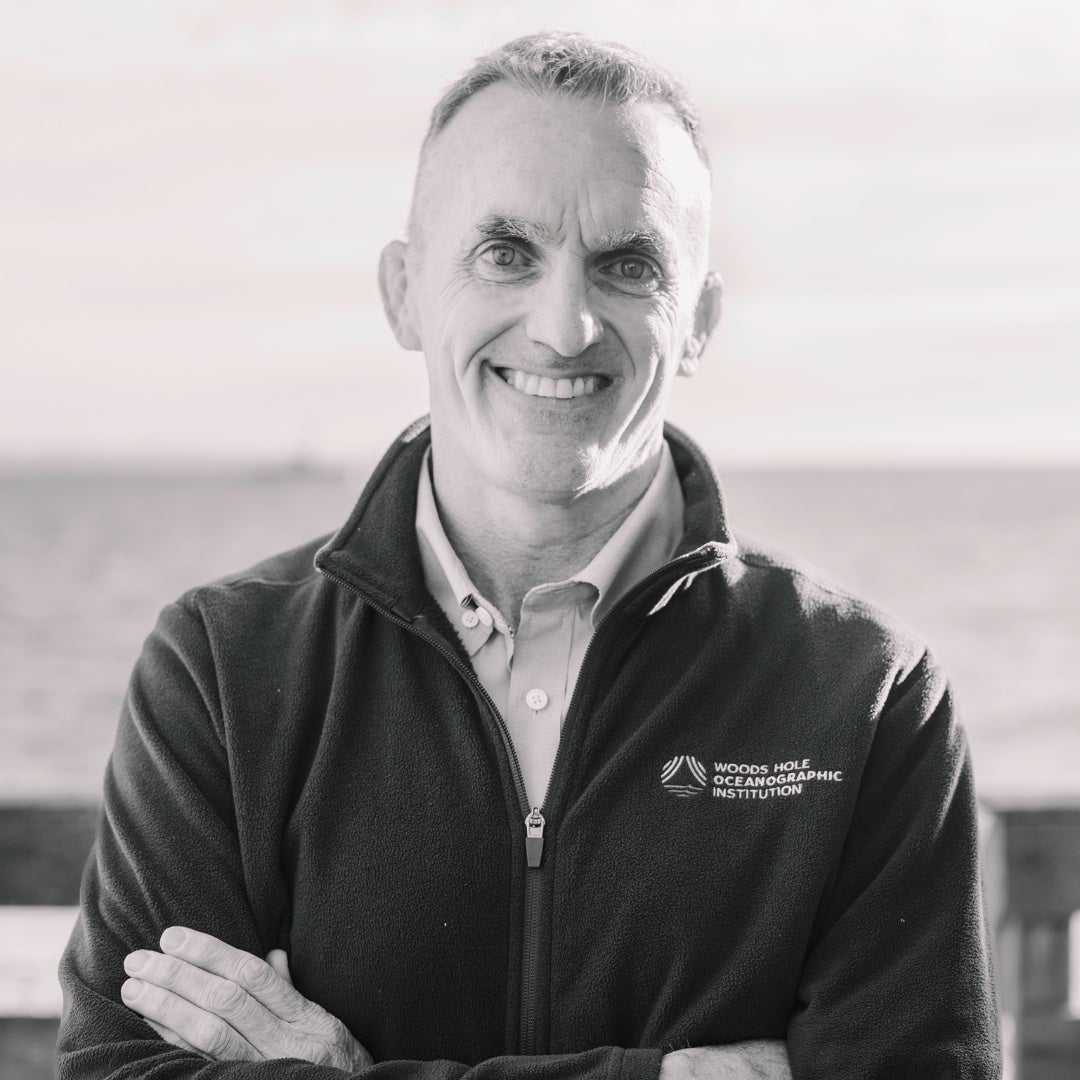By Matt Dunn, GSO alum (Ph.D. ’23)
Edited by Jaclyn Witterschein, URI Coastal Institute
Chris Reddy, Ph.D. ’98, who earned his doctorate from the Graduate School of Oceanography (GSO), recently published a book. In a vacuum, it’s not all that strange for a researcher to compose a sentence or a thousand; science requires a ton of writing, and he wouldn’t be the first scientist to pen a textbook or share an inordinately long and complicated paper with the wide world.
However, Reddy did not write a textbook. Instead, he wrote a book about communicating science, relying on his experiences over the course of his career. That career is impressive, as Reddy has been a staple of chronic pollutant and oil spill research since he was a student with University of Rhode Island (URI) Professor Emeritus James Quinn, and for 26 years as a senior scientist at the Woods Hole Oceanographic Institution (WHOI) —having started at WHOI the day after defending his Ph.D. in 1997.
But instead of lavishing us with his many career successes, Science Communication in a Crisis: An Insider’s Guide, discusses how to effectively explain and disseminate research even under the immense pressure of an environmental crisis, like the 2010 Deepwater Horizon disaster in the Gulf of Mexico, when oil jettisoned from the seafloor at a clip of 60,000 gallons per hour for a solid 87 days.
Chris was in good company in the Gulf of Mexico in 2010. He counted six of Quinn’s students active during Deepwater Horizon.
“I’m pretty good friends with all these folks. I think that’s one of the more positive aspects of coming out of GSO. [And] I continue to rely on [Quinn’s] advice,” Reddy remarks. Quinn retired in 2004 after 36 years of leading GSO’s environmental organic chemistry laboratory, focusing on persistent organic pollutants, including many chemicals that share long-lasting health effects, like PFAS.
Fellow GSO alum, Matt Dunn, Ph.D. ‘23, who also earned his doctorate researching the impact of man-made pollution in oceans, sought Reddy to talk about his new book, garner advice for young researchers, and uncover meaningful science for the everyperson.
MD: Science communication is more important than ever, yet it’s not something that is always presented as a required part of a scientist’s tool kit. Why do you think there’s such a disconnect?
CR: One of the biggest challenges of trying to incorporate the value of science communication into promotions at the tenure track is the lack of reliable metrics. It’s straightforward to go to Google Scholar (warts and all) and identify impact. A lot of people push back on H-factors [a common metric used in academia to quantify the impact of a scientist’s papers and research], but it’s quantifiable, and it’s understandable. Whether you agree with it or not, it’s calculatable. There’s no value system or currency for you making a meaningful impact on a person you’re standing next to at Stop & Shop. What’s the value of mentoring or judging a 7th grade science fair? Or being interviewed and featured in the Providence Journal? Or having an active and useful social media presence?
Evaluating [science communication] is frustrating because we don’t have a metric system, we don’t have a currency. While problematic for evaluating a scientist in academia, I don’t worry too much. Scientists should want to communicate scientist for themselves. It makes you a better scientist and a better person. There is a lot of rejection in academia, so it is rewarding to explain science in a meaningful and enriching way.
MD: What advice could you offer to younger scientists who may be struggling to find their foot in the scientific communication space? Especially when they’re not always rewarded for their efforts, as you mentioned?
CR: I encourage low-risk, local, achievable, and initially informal. Identify and/or create opportunities to chat about science with your friends, family, neighbors, etc. Constantly evaluate your performance and ask for input. Meet with your university’s press office or faculty members in departments like communications, theatre, and business. Chat with a professor who was recently in the news. Ask them about their experiences. Contact a local government official who relies on science. Ask them about what they like and what they wish scientists could do to help inform them. Tell them about the challenges of doing science and why certainty is not so easy to achieve. Learn from different people about different perspectives. Find what matters to them. Be curious. If you are sincere and genuine, you will be amazed how many people will be willing to help.
When asked what you do, lead with what you are trying to achieve, such as, “I’m trying to understand whether or not Scotchgard lasts forever, and whether more of it is in the oceans or the mountains.” You want to avoid leading with the techniques (“I’m making gas chromatographic with Triple Quad phase-transfer mass spectral analyses of the dissolved phase”), which is meaningless. Wait for someone to ask you how you measure something. Many chemists, in particular, get enamored with the measurement without thinking more about why we’re spending all this time and what motivates us.
Reddy’s book, Science Communication in a Crisis: An Insider’s Guide (Routledge, 2023) identifies the principal challenges that scientists face when communicating with different stakeholder groups, and offers advice on how to navigate the maze of competing interests and deliver actionable science when the clock is ticking.
At a time when science communication is arguably more important than ever, it will be up to the next generation of scientists to make sure the impact of their complex work can be explained to the public.
One of the world’s foremost oil spill scientists, Reddy will speak at the URI Bay Campus and sign copies of his book on Thursday, March 28th, 3:30-4:45pm. Details, registration information, and a link to watch the event online are available.

